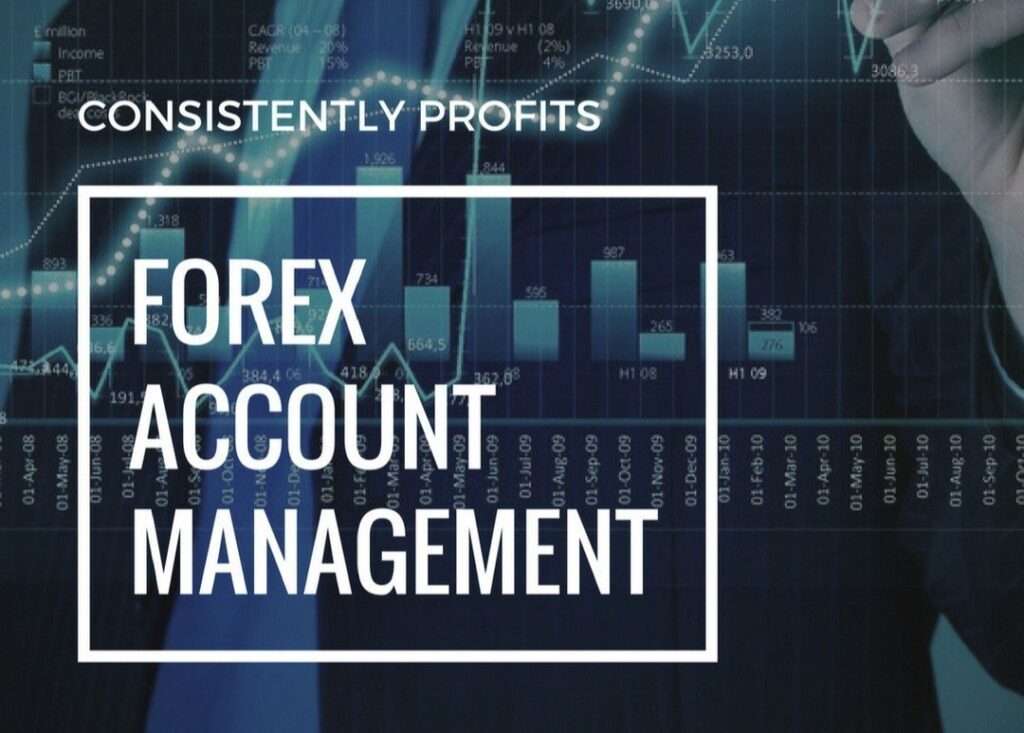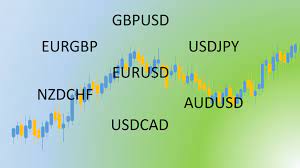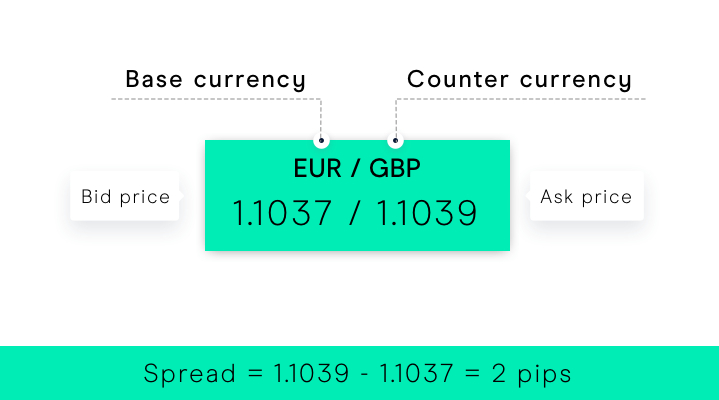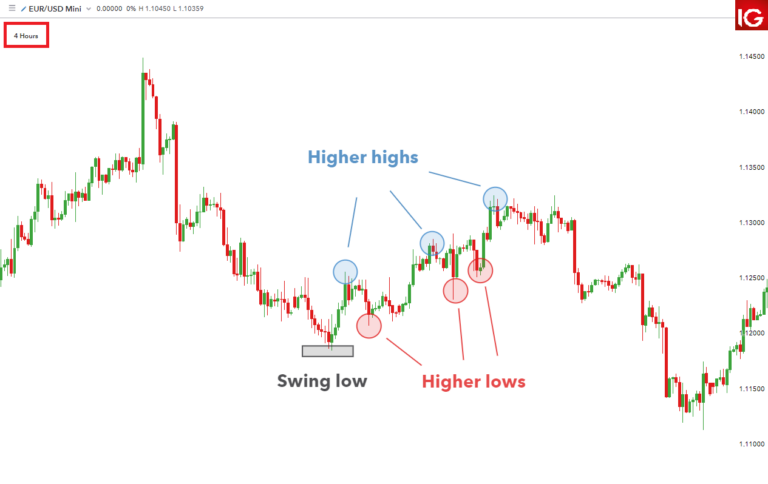Understanding Forex Managed Accounts: A Comprehensive Guide
Introduction
Forex trading has gained significant popularity in recent years due to its potential for high returns and accessibility to global markets. However, navigating the complexities of the foreign exchange market can be daunting for individual investors. This is where Forex managed accounts come into play, offering investors a convenient way to participate in the market while entrusting their funds to professional managers. In this comprehensive guide, we will delve into the workings of Forex managed accounts, covering everything from their definition and types to the benefits, risks, and considerations for investors.
Understanding Forex Managed Accounts
Forex managed accounts are investment vehicles where individual investors allocate funds to professional money managers, who then trade on their behalf in the foreign exchange market. The primary goal is to generate profits while mitigating risks through strategic trading decisions. Managed accounts can offer various investment strategies tailored to meet the objectives and risk tolerance of investors.
What Are Forex Managed Accounts?
Forex managed accounts represent a sophisticated investment vehicle where investors entrust their funds to professional managers, known as account managers or traders, to conduct trading activities in the foreign exchange (Forex) market on their behalf. At its core, a Forex managed account operates as a discretionary investment account, offering investors a hands-off approach to participate in Forex trading while benefiting from the expertise of seasoned professionals.
Here’s a detailed expansion on what Forex managed accounts entail:
- Discretionary Investment Account: A Forex managed account functions as a discretionary investment account, meaning that the appointed manager has the authority to make trading decisions without requiring explicit approval from the investor for each transaction. This discretionary power allows managers to react swiftly to market opportunities and implement strategies in real-time based on their analysis and expertise.
- Designated Manager: In a managed account setup, investors designate a professional manager or a team of traders to oversee the trading activities on their behalf. These managers are typically experienced professionals with a deep understanding of Forex markets, technical analysis, and risk management strategies. Their role involves devising trading strategies, executing trades, and actively monitoring market conditions to optimize investment performance.
- Ownership Retention: Despite granting trading authority to the designated manager, investors retain full ownership and control over their funds. The managed account structure ensures that investors’ capital remains separate from the manager’s assets, providing transparency and security. Investors can monitor the performance of their accounts, review trading activities, and access account statements to track the progress of their investments.
- Trading Authority: Investors grant trading authority to the manager, empowering them to execute trades on their behalf within the parameters of the agreed-upon investment strategy. This delegation of authority streamlines the trading process, eliminating the need for investors to actively engage in day-to-day trading activities. Managers utilize their expertise to implement trading decisions, including selecting currency pairs, entering and exiting positions, and managing risk exposure.
- Predetermined Strategies: Managed accounts operate based on predetermined trading strategies tailored to meet investors’ objectives and risk preferences. These strategies can vary widely, ranging from conservative approaches focused on capital preservation to aggressive strategies aimed at maximizing returns. Managers may employ various trading techniques, such as trend following, range trading, or fundamental analysis, depending on market conditions and investment goals.
- Customization Options: Managed accounts offer customization options to accommodate different investment preferences and risk profiles. Investors can collaborate with their designated managers to define specific investment objectives, risk tolerance levels, and preferred trading styles. This customization ensures that the investment strategy aligns with the investor’s financial goals and expectations, enhancing the overall suitability and effectiveness of the managed account.
Overall, Forex managed accounts provide investors with a convenient and efficient way to participate in the dynamic Forex market without the need for active involvement in trading activities. By leveraging the expertise of professional managers and utilizing customized investment strategies, managed accounts offer the potential for attractive returns while mitigating risks associated with Forex trading.
Types of Forex Managed Accounts
There are several types of Forex managed accounts, each offering distinct features and investment strategies:
- Individual Managed Accounts: In this type, each investor has a separate account managed individually, allowing for personalized investment strategies tailored to specific objectives and risk profiles.
- Pooled Managed Accounts: Funds from multiple investors are pooled together and managed collectively by a single manager. Profits and losses are distributed among investors based on their respective contributions.
- Discretionary Managed Accounts: Managers have full discretion over trading decisions, including asset allocation, trade execution, and risk management.
- Non-Discretionary Managed Accounts: Investors retain control over certain aspects of trading decisions, such as setting investment guidelines or approving specific trades.
How Managed Accounts Differ from Automated Trading Systems
Managed accounts and automated trading systems represent two distinct approaches to participating in the financial markets, each offering unique advantages and considerations. Let’s delve deeper into how these two methods differ in their approach and execution:
Managed Accounts:
Managed accounts rely on human expertise and decision-making, emphasizing the role of experienced managers in analyzing market conditions and executing trades. Here are some key characteristics of managed accounts:
- Human Expertise: The cornerstone of managed accounts lies in the expertise of professional managers who possess in-depth knowledge of the financial markets, including Forex. These managers leverage their experience, market insights, and analytical skills to formulate trading strategies and make informed decisions.
- Analytical Approach: Managed account managers conduct thorough market analysis, considering various factors such as economic indicators, geopolitical events, and technical indicators to identify trading opportunities. Their decisions are based on a combination of fundamental analysis, technical analysis, and sentiment analysis, allowing for a nuanced understanding of market dynamics.
- Flexibility and Adaptability: Human managers have the ability to adapt their strategies in response to changing market conditions and emerging trends. They can exercise discretion in adjusting trading parameters, fine-tuning risk management techniques, and capitalizing on evolving market opportunities, thereby enhancing the adaptability of managed accounts.
- Customization and Personalization: Managed accounts offer a high degree of customization and personalization, allowing investors to tailor their investment strategies according to their individual objectives, risk tolerance, and preferences. Managers collaborate closely with investors to understand their financial goals and design bespoke trading approaches to achieve optimal outcomes.
Automated Trading Systems:
Automated trading systems, also known as algorithmic trading or expert advisors (EAs), employ pre-programmed algorithms to execute trades automatically based on predefined criteria. Here are some key characteristics of automated trading systems:
- Algorithmic Execution: Automated trading systems utilize algorithms, or sets of rules and parameters, to identify trading signals and execute trades without human intervention. These algorithms are designed to interpret market data, generate buy or sell signals, and execute trades swiftly and efficiently.
- Rule-Based Trading: Automated trading systems operate based on predefined rules and criteria programmed into the algorithms. These rules can encompass various technical indicators, price patterns, and risk management parameters, providing a systematic framework for decision-making.
- Speed and Efficiency: Automated trading systems can execute trades with precision and speed, capitalizing on market opportunities in real-time without the delays or emotional biases associated with human decision-making. This efficiency allows for rapid trade execution and responsiveness to market fluctuations.
- Backtesting and Optimization: Automated trading systems undergo rigorous backtesting and optimization processes to validate their performance and refine their algorithms. This iterative approach enables developers to fine-tune trading strategies, optimize risk-adjusted returns, and enhance the robustness of automated trading systems over time.
In summary, managed accounts and automated trading systems represent distinct approaches to trading in the financial markets. While managed accounts rely on human expertise and discretionary decision-making, automated trading systems utilize pre-programmed algorithms for rule-based execution. Both methods offer unique advantages and considerations, and the choice between them depends on factors such as investor preferences, risk tolerance, and desired level of involvement in the trading process.
Choosing a Managed Account Provider
When selecting a managed account provider, it’s crucial to conduct thorough due diligence and consider various factors to ensure alignment with your investment goals and preferences. Here’s an expansion on key considerations when evaluating managed account providers:
- Track Record and Reputation:
- Performance History: Review the provider’s track record, including past returns and performance metrics. Assess the consistency of returns over different market conditions and timeframes to gauge the provider’s ability to deliver results.
- Risk Management Practices: Evaluate the provider’s risk management strategies and practices. Look for evidence of prudent risk management techniques, such as diversification, position sizing, and stop-loss orders, aimed at preserving capital and mitigating downside risk.
- Client Testimonials: Seek feedback from current or past clients to gain insights into their experiences with the provider. Client testimonials can provide valuable perspectives on the quality of service, communication, and overall satisfaction with the managed account.
- Regulatory Compliance:
- Licensing and Regulation: Verify that the managed account provider is licensed and regulated by relevant financial authorities in their jurisdiction. Regulatory compliance provides assurance of adherence to industry standards, investor protection measures, and legal obligations.
- Compliance History: Check for any disciplinary actions, sanctions, or complaints filed against the provider with regulatory agencies. A clean compliance record demonstrates a commitment to ethical conduct and regulatory compliance.
- Investment Philosophy and Strategy:
- Philosophy and Approach: Understand the provider’s investment philosophy and approach to trading. Determine whether their investment style aligns with your objectives, risk tolerance, and preferences. Consider factors such as fundamental analysis, technical analysis, trading frequency, and asset allocation strategies.
- Risk Management Practices: Assess the provider’s risk management practices, including their approach to managing market risk, volatility, and drawdowns. Look for a disciplined approach to risk management that prioritizes capital preservation and downside protection.
- Fees and Costs:
- Management Fees: Evaluate the fee structure, including management fees charged by the provider. Management fees are typically calculated as a percentage of assets under management (AUM) and cover the cost of managing the account.
- Performance-Based Fees: Determine if the provider charges performance-based fees, which are contingent upon achieving specified performance targets or benchmarks. Performance fees incentivize the provider to generate positive returns for investors.
- Other Charges: Consider any additional charges or expenses associated with the managed account, such as brokerage fees, administrative fees, or performance-related expenses. Factor in the overall cost of investing to assess the impact on net returns.
By carefully evaluating these factors, investors can make informed decisions when selecting a managed account provider that aligns with their investment objectives, risk tolerance, and expectations. Conducting thorough due diligence and seeking transparency from the provider are essential steps to mitigate risks and maximize the potential for investment success.
Benefits and Risks of Forex Managed Accounts
Managed accounts offer several benefits for investors:
- Professional Expertise: Investors gain access to the expertise and experience of seasoned money managers, potentially enhancing the performance of their investment portfolio.
- Diversification: Managed accounts can diversify across multiple currency pairs and trading strategies, reducing overall portfolio risk and enhancing potential returns.
- Passive Income: Managed accounts provide a passive investment opportunity, allowing investors to earn potential profits without actively participating in trading activities.
- Transparency and Oversight: Reputable managed account providers offer transparency through regular reporting and performance updates, enabling investors to monitor their investment’s progress.
Potential Drawbacks and Risks
Despite their advantages, Forex managed accounts also entail certain risks and considerations for investors:
- Manager Risk: The success of a managed account heavily relies on the skill and expertise of the appointed manager. Poor decision-making or trading strategies could lead to financial losses for investors.
- Market Risk: Forex markets are inherently volatile and unpredictable, subject to various macroeconomic factors, geopolitical events, and currency fluctuations that can impact investment performance.
- Fees and Costs: Managed accounts often entail management fees and performance-based fees, which can reduce overall returns for investors, especially during periods of underperformance.
- Lack of Control: Investors relinquish control over trading decisions to the manager, potentially limiting their ability to intervene or adjust strategies in response to changing market conditions.
How to Get Started with a Forex Managed Account
Getting started with a Forex managed account involves the following steps:
When considering opening a Forex managed account, it’s crucial to follow a systematic approach to ensure that you select the right provider and set clear investment objectives. Here’s an expanded guide on how to get started with a Forex managed account:
- Research and Due Diligence:
- Conduct comprehensive research to identify reputable managed account providers with a proven track record of success and regulatory compliance.
- Look for providers with a history of delivering consistent returns, transparent communication, and adherence to industry best practices.
- Verify the provider’s regulatory status and licensing credentials to ensure compliance with relevant financial authorities.
- Select an Account Type:
- Evaluate your investment preferences, risk tolerance, and desired level of control to determine the most suitable account type.
- Individual Managed Account: Opt for an individual managed account if you prefer personalized investment strategies tailored to your specific objectives and risk profile.
- Pooled Managed Account: Consider a pooled managed account if you seek diversification and are comfortable with a collective investment approach, where funds from multiple investors are pooled together and managed collectively by a single manager.
- Open an Account:
- Follow the managed account provider’s account opening process, which typically involves completing documentation and fulfilling identity verification requirements.
- Provide necessary personal information, such as identification documents, proof of address, and any additional documentation required by the provider or regulatory authorities.
- Fund the account with the minimum investment required by the provider. Ensure that you understand the funding options available, such as bank transfers, credit/debit cards, or electronic payment systems.
- Define Investment Objectives:
- Clearly communicate your investment goals, risk tolerance, time horizon, and any specific preferences or constraints to the account manager.
- Discuss your financial objectives in detail, including your target returns, acceptable level of volatility, and any restrictions or preferences regarding asset allocation or trading strategies.
- Collaborate with the account manager to tailor the investment strategy to your individual needs and ensure alignment with your long-term investment objectives.
- Monitor Performance:
- Regularly review performance reports and updates provided by the managed account provider to assess the investment’s progress and performance.
- Monitor key performance metrics, such as returns, drawdowns, volatility, and risk-adjusted measures, to evaluate the effectiveness of the investment strategy.
- Stay informed about market developments, economic trends, and any changes in the investment approach or trading activities initiated by the account manager.
- Maintain open communication with the account manager to address any questions, concerns, or adjustments needed to align the investment strategy with your evolving objectives.
By following these steps and conducting due diligence, investors can embark on their journey with a Forex managed account with confidence, setting clear objectives and expectations while ensuring alignment with their financial goals and risk tolerance. Regular monitoring and communication with the account manager are essential for optimizing performance and maintaining transparency throughout the investment process.
Conclusion
Forex managed accounts offer investors a convenient and potentially lucrative avenue to participate in the foreign exchange market with the expertise of professional money managers. By understanding the intricacies of managed accounts, including their types, benefits, risks, and considerations, investors can make informed decisions to optimize their investment portfolio. While managed accounts provide opportunities for passive income and portfolio diversification, it’s essential to conduct thorough due diligence and select reputable providers to mitigate risks and maximize returns.
FAQs
- What is the minimum investment for a Forex managed account? Minimum investment requirements vary depending on the managed account provider and account type. Some providers may require a minimum investment of a few thousand dollars, while others may have higher thresholds.
- How are profits and losses allocated in a pooled managed account? In pooled managed accounts, profits and losses are typically allocated among investors based on their proportional contributions to the fund. Each investor’s share of profits or losses is determined by their initial investment amount.
- Can I withdraw my funds at any time from a managed Forex account? Managed account providers may impose withdrawal restrictions or redemption periods, depending on the terms and conditions outlined in the agreement. Investors should review the provider’s policies regarding withdrawals and redemption procedures before investing.
- How do managed account managers mitigate risk? Managed account managers employ various risk management techniques, including portfolio diversification, stop-loss orders, position sizing, and hedging strategies, to mitigate the impact of market volatility and adverse events.
- Are Forex managed accounts suitable for beginners? While Forex managed accounts offer passive investment opportunities, they may not be suitable for beginners without prior knowledge or experience in trading. It’s essential for investors to understand the risks involved and conduct thorough research before committing funds to a managed account.
Click here to read more on Forex Managed Accounts





